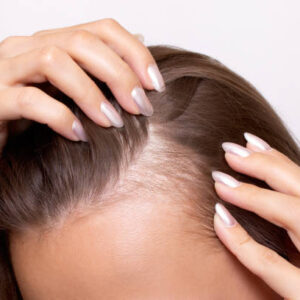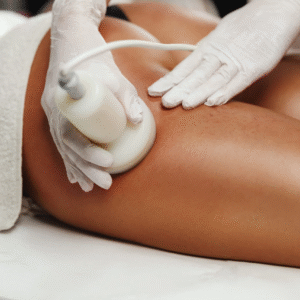For many people living in Dubai, acne is more than just a cosmetic concern—it can deeply affect confidence, daily routines, and even long-term skin health. While advanced clinics in the city offer a variety of solutions, one of the most common concerns patients have is: When is acne treatment in Dubai actually covered by health benefits or insurance plans? Understanding this distinction can help you choose the right approach without financial stress.
This article explains the circumstances in which Acne Treatment in Dubai may qualify for coverage, the types of treatments available, and what to expect before and after the procedure.
Understanding Acne Treatment in Dubai
Why Acne Requires Professional Care
Acne can range from mild breakouts to severe cystic lesions that cause scarring. Over-the-counter creams may work for some, but many cases need dermatologist-guided therapies such as prescription medication, chemical peels, or laser procedures.
Types of Acne Treatments in Dubai
When you book a consultation for Acne Treatment Dubai, the dermatologist may recommend:
Medical Treatments (Often Covered by Benefits)
Prescription oral or topical medications
Antibiotics for bacterial acne
Hormonal therapy for women with hormonal acne
Cortisone injections for painful cysts
Cosmetic Treatments (Usually Not Fully Covered)
Chemical peels for acne and post-acne marks
Laser resurfacing such as fractional CO2
Hydrafacials for acne-prone skin
Microneedling for scars and texture improvement
Both categories play an important role in achieving long-term clear skin, but insurance coverage depends on how acne is classified in your case.
When Does Acne Treatment Qualify for Benefits?
1. When Acne Is Considered a Medical Condition
If your dermatologist confirms that acne is causing infections, inflammation, or long-term scarring, treatments are often classified as medical rather than cosmetic. In such cases, your insurance or health benefits may partially or fully cover:
Prescription medications
Professional dermatologist visits
Certain medical procedures (e.g., drainage of cysts)
2. When Acne Impacts Quality of Life
Severe acne can lead to emotional distress and even anxiety or depression. Many health providers in Dubai recognize this and may approve medical acne treatment under mental well-being benefits.
3. When Linked to an Underlying Health Condition
Sometimes acne is a symptom of conditions like hormonal imbalance (PCOS) or other endocrine issues. If acne treatment is part of managing these conditions, your plan is more likely to cover it.
When Acne Treatment Is Not Covered
It’s equally important to know when your plan will not cover Acne Treatment Dubai. Usually, purely cosmetic solutions fall under elective procedures, which means you’ll pay out of pocket. Examples include:
Chemical peels for mild acne scars
Laser facials for pigmentation
Routine hydrafacials or skin polishing
These treatments are valuable for skin enhancement but are not deemed medically necessary.
Benefits of Acne Treatment Dubai
Whether covered by benefits or paid privately, acne treatment in Dubai comes with clear advantages:
Clearer, Healthier Skin: Reduction of breakouts and prevention of scars
Boosted Confidence: Positive self-image and emotional well-being
Long-Term Results: Professional care prevents recurrence of severe acne
Customized Plans: Dubai dermatologists design treatments for your skin type and lifestyle

What to Expect During the Process
Initial Consultation
Your dermatologist will assess your skin, discuss your medical history, and decide whether your acne qualifies as medical or cosmetic.
Treatment Plan
If medical: Expect prescriptions or clinical treatments
If cosmetic: Procedures like peels, lasers, or facials will be suggested
Documentation for Benefits
Clinics usually provide medical reports if treatment is eligible for insurance coverage. Always check with your provider before starting.
Post-Treatment Care: Maximizing Results
Whether your acne care is covered or self-funded, aftercare is critical:
Follow Prescriptions Strictly: Complete full antibiotic or medication courses
Gentle Skincare: Use dermatologist-approved cleansers and sunscreens
Avoid Picking or Scratching: To prevent scarring and pigmentation
Regular Checkups: Track progress and adjust the treatment plan if needed
How to Check Your Eligibility for Benefits
Step 1: Contact your insurance provider and ask about dermatology coverage.
Step 2: Request a dermatologist’s evaluation and medical documentation.
Step 3: Confirm whether the treatment is categorized as “medical necessity” or “cosmetic.”
Step 4: Obtain pre-approval if required.
Conclusion: Finding Clarity on Coverage
The answer to “When is Acne Treatment Dubai covered by benefits?” depends on how your condition is defined. If acne is severe, painful, or tied to other health issues, medical treatment is often covered. On the other hand, cosmetic enhancements like laser facials and peels are usually out-of-pocket investments.
By consulting with a dermatologist and communicating clearly with your insurance provider, you can make informed choices that balance health, aesthetics, and affordability.
Whether medical or cosmetic, Acne Treatment Dubai offers life-changing results—clear skin, restored confidence, and long-term wellness.
FAQs About Acne Treatment Dubai and Coverage
1. Is Acne Treatment Dubai covered by insurance or benefits?
Yes, acne treatment in Dubai may be covered if it is considered a medical necessity. This usually applies when acne is severe, painful, causing infections, or leaving permanent scars. Cosmetic procedures, however, are typically not covered.
2. Which acne treatments in Dubai are usually covered?
Treatments such as prescription medications, dermatologist consultations, and minor medical procedures (like cortisone injections for cystic acne) are commonly covered under health benefits.
3. Are cosmetic acne treatments in Dubai covered?
No, cosmetic treatments like chemical peels, laser facials, microneedling, and hydrafacials for acne-prone skin are generally not covered by insurance as they are considered elective.
4. How can I confirm if my acne treatment is covered?
You should contact your insurance provider directly and request details about dermatology coverage. A dermatologist in Dubai can also provide medical documentation to help determine eligibility.


